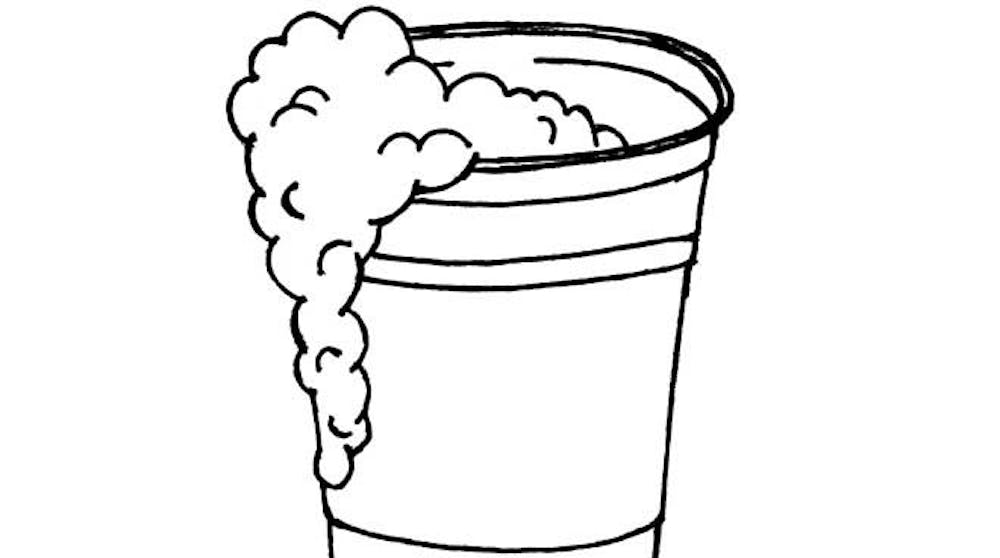Last October Dr. Pauline Chen published an article, "Medical Student Distress and the Risk of Doctor Suicide," in The New York Times about suicide rates among physicians and medical students.
She defined the difference between burnout and depression, two conditions that medical students are proven to become afflicted with at higher rates than their peers. Burnout infers professional distress while depression infers personal distress.
She wrote of medical students that, "despite better access to health care, they are more likely to cope by resorting to dysfunctional behaviors like excessive drinking and are less likely to receive the right care or even recognize that they need some kind of intervention."
How much of this could allude to an explanation of our campus behavior? To not only medical students, but to all students? Most college life is filled with comparable, if perhaps fewer stressors than medical school, and with parallel access to psychological services. College students react on the same scale: It seems that every other weekend I hear about friends, or friends of friends, whether on this campus or on others, who land themselves in the hospital because of overconsumption of alcohol.
Two possible theories behind the medical student imbalance explored by researchers are "the increasing social isolation of medical education, training and practice," as well as self-criticism and self-blame for personal imbalance.
But it's so easy for any of us to get off track: A test we walk out of, knowing we screwed up, even though we studied what we thought was all the right material. An athletic or music event we leave, wondering why we couldn't perform the same, effortless way we had practiced. We can all be isolated at times, by our studies, by our assignments, by our thoughts.
So why are we still so hard on ourselves? To what realistic ideals are we comparing ourselves when we impulsively self-identify as inadequate when struck by the feeling that we did not do as well at a task as we had hoped we would, or as we thought we were meant to do? And why do we allow this to channel the ways we conduct ourselves socially?
To break from this mentality would be better, to entirely sidestep this inexplicable automatic notion that we just failed in some way, that our product is never as good as our potential. Sometimes it seems all we have are obligations to stress about: college performance, social blending, getting in shape, summer internships, more college, graduation, careers -- the rest of our lives. All of this fits into Chen's concept of professional distress.
We will burn out if we don't keep reminding ourselves that there are worse forms of failure -- like forgetting about everything outside of these constant obligations, for instance.
A few weeks ago, my journalism professor shared his impression that students at Richmond seem more stressed out every year, and he wondered why. I remember our former opinion editor responding, saying that even when we have completed our own work and we should be relieved of pressure, we are perpetually caught up in this atmosphere in which someone around us is stressing about something. So even when we finally have a few moments to be lulled into a reprieve, we still feel that we need to snap out of it and throw ourselves into some other new or lingering task.
In this type of environment, how can we go about altering our mentalities?
On my drive back to Richmond from winter break, with the trees and exits and air cascading sideways past the car windows, my close friend explained to me a concept a religious mentor had conveyed to her: the notion of taking life in 24-hour pieces. In infusing these hours with as much energy and passion and enjoyment as we possibly can. Certainly there is space to include heavy doses of working and studying, but failing to leave room for the all the rest is just lessening the worth of every subsequent hour.
Enjoy what you're reading?
Signup for our newsletter
There is no sense in neglecting to give ourselves moments each day to reflect, listen to music, spend time with friends or merely just breathe.
Contact staff writer Katie Toussaint at katie.toussaint@richmond.edu
Support independent student media
You can make a tax-deductible donation by clicking the button below, which takes you to our secure PayPal account. The page is set up to receive contributions in whatever amount you designate. We look forward to using the money we raise to further our mission of providing honest and accurate information to students, faculty, staff, alumni and others in the general public.
Donate Now


